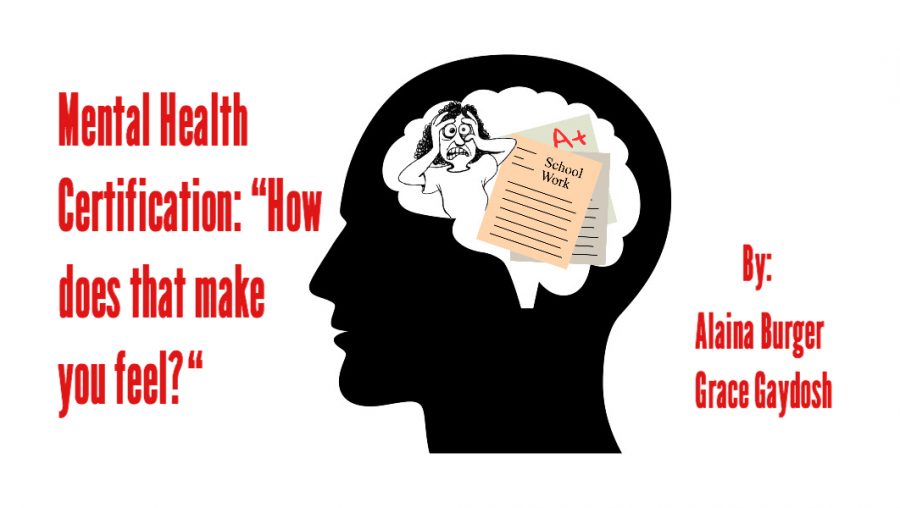Mental health certification: “How does that make you feel?”
December 18, 2019
Breathe. Just breathe.
I’ve had two panic attacks in school but nobody knows how to help me–I’ve been sent home both times. If I had broken my arm, this story would be a lot different. The staff at Linganore would have known exactly how to help me.
Recently, anxiety has become the leading mental illness for teenagers, and many teenagers have been reporting overwhelming anxiety in schools. Many students feel as if schools are not doing enough to help them when it comes to mental health, and Maryland state laws have failed to produce helpful, reliable resources for students struggling with mental illness.
Lancer Media posted a poll on Instagram to see how many students believe that Maryland public schools should be required to provide reliable, helpful mental health services for students.
Nearly 90% voted that schools do not do enough to help. This is unacceptable.
Students spend 180 days of the year in school. Some students suffering from mental illnesses might not get the help they need at home, and Maryland teachers are only required to be trained a few minutes each year in crisis mental health issues, like bullying and suicide.
Why are we waiting until the last minute to provide help to our students? Why are school counselors the only ones trained in mental health when many students meet with counselors only once or twice a year?
The nationwide average for staffing counselors is about 491 students to 1 counselor. It can be difficult for students to create a meaningful relationship with a counselor they trust if the counselor has over 400 other students to take care of as well.
Most students have that one teacher that they can rely on and trust, and by training teachers in mental health issues, it will increase the number of students who receive the help they need.
Mrs. Jamie Hendi, one of the social studies teachers, said, “I would certainly welcome the opportunity for further training. In the last few years, I have noticed an increase in the amount of anxiety and depression I see among my students. I have full confidence in our school counselors, who are fabulous, but sometimes a student may be hesitant to talk to someone they don’t know.”
Currently, Maryland House Bill 920 (“Lauryn’s Law”), requires mental health training for school counselors. We propose that this be amended to include required mental health training for teachers. We also propose that the bill lists “anxiety” as a mental illness that needs to be addressed during training.
Teachers should be included in this bill because they learn to understand their students better than other school personnel. Students tend to trust teachers more, but most teachers are still extremely unprepared to help students who are in crisis situations.
Amending the bill to list anxiety would ultimately increase awareness about anxiety as a growing problem for teenagers. Anxiety is highly treatable, yet only 36.9% of those suffering from anxiety receive attention and help.
We aren’t saying this is something that will happen overnight–new policies take a long time to implement. In the meantime, however, teachers should implement helpful practices in the classroom, even though it is not required of them to earn mental health certification.
George Carlson, a clinical social worker and therapist located in Columbia, Maryland, had pointers for teachers when it comes to implementing helpful practices in the classroom.
“Let them talk. Listen to what is happening from their perspective. Give support. Get them to a professional person who is equipped to help them develop a stepwise plan to begin to change their situation and their perspective of the situation,” said Carlson.
Carlson also recommended that teachers allow students to step out of the classroom for a few moments if they are feeling anxious.
“Dealing with anxiety in a public setting is difficult. Deep breaths are very important, and getting away from the situation allows us to get a change of perspective and mindset,” he said.
Schools still have a long way to go before mental health can be considered just as important as physical health, and implementing strategies in the classroom to deal with this can be difficult for teachers who don’t open up to their students.
Training aspiring teachers through their college certification programs would be helpful as well, and it would ensure that all future teachers are trained in student mental health and know how to stop a crisis situation.
Ultimately, teachers should be mindful of their students’ mental health. Not every student has a strong support system at home, and, while amending Lauryn’s Law would be nice, it all starts with awareness of student needs.






